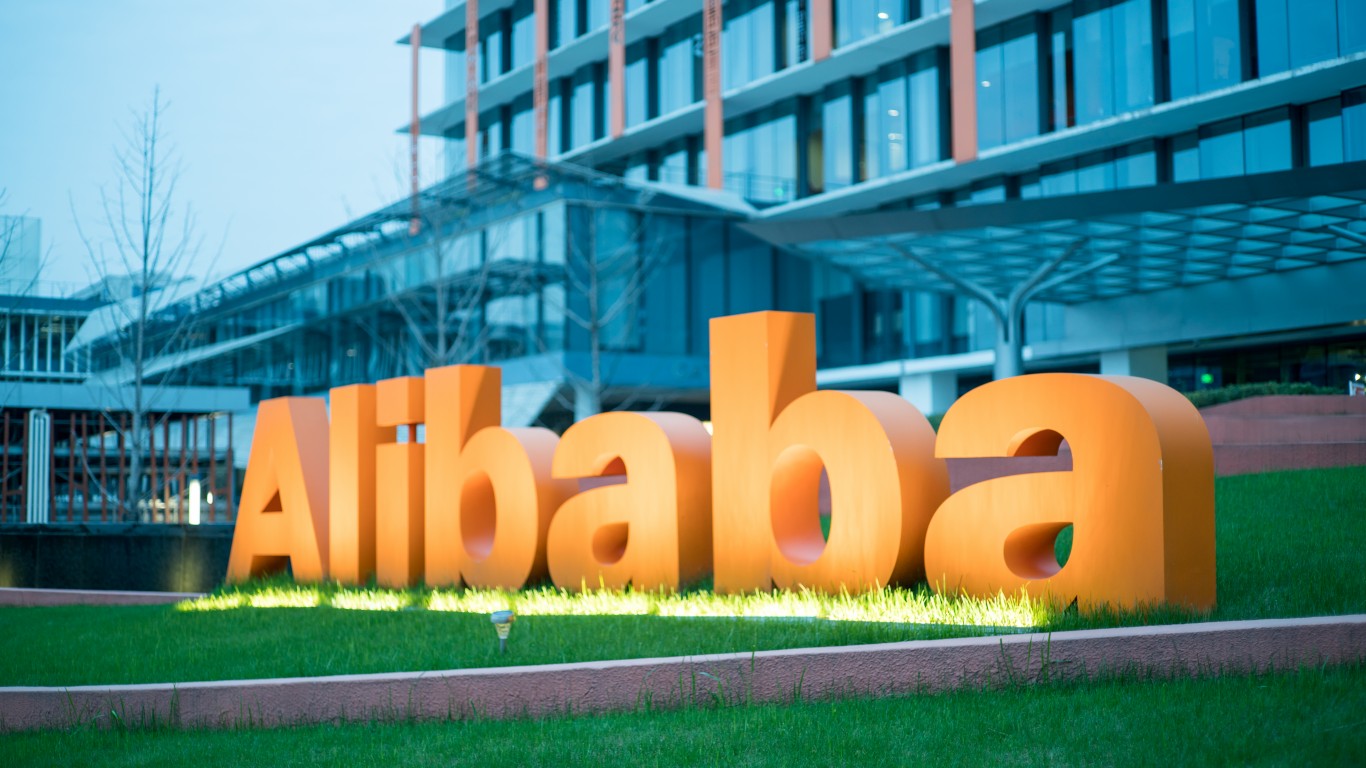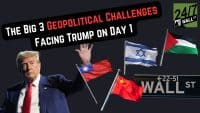
Alibaba Group Holding announced the largest restructuring in its history today. The e-commerce conglomerate will split into six companies, fragmenting its $226.7 billion market cap. Does this mark the end of China’s crackdown on the tech sector?
Alibaba’s Six-Part Restructuring
On Tuesday, Alibaba CEO and Chairman Daniel Zhang announced the company’s historic restructuring. Following its major revenue sectors, the Chinese tech giant will split into six independently run companies:
- Cloud-computing
- Logistics
- E-Commerce
- Global e-commerce
- Media and entertainment
- Digital mapping and food delivery
Each company will have its CEO and board of directors, with the possible pursuance of separate Initial Public Offerings (IPOs) down the line. Zhang will remain the CEO of Alibaba Group, which is to become a holding company for domestic commerce business. The market reacted positively to the news, as BABA shares jumped by over 10%.
The restructuring move follows a similar pattern experienced by China’s other tech giants. Two years earlier, in November 2021, TikTok’s parent company, ByteDance, also split into six business units. The restructuring can be traced to China’s regulatory crackdown on large tech companies in both instances.
What Led to Alibaba Breaking Up?
In October 2020, the founder of Alibaba and former English teacher, Jack Ma, publicly criticized China’s regulatory environment. At Shanghai’s Bund Summit, Ma called out China’s governance as having a “pawnshop mentality,” negatively affecting entrepreneurs.
Ma further described China’s financial scene as an “old people’s club” out of touch with tech innovation. Predictably, the Chinese Communist Party (CCP) viewed the speech as a challenge. Since then, Alibaba’s (BABA) stock has undergone waves of depreciation, declining by 68%.
The first domino to fall was the cancellation of Ma’s IPO for Ant Group, the micro-lending company. The last-minute canceled deal was worth $37 billion. An antitrust probe followed this into Alibaba Group Holding itself.
Likewise, Jack Ma disappeared from the public eye, including his Twitter account, which has October 10, 2020, as his last engagement. Amid the rumors that China’s richest man was detained, Jack Ma has spent time in Japan and Hong Kong. Ma’s latest public appearance in China happened this Monday.
At the private Yungu School in Hangzhou, Ma’s speech lacked controversy, mainly addressing the challenges of technological innovation in education, saying that “We must use AI to solve problems, not to be controlled by AI.”
The End of China’s Tech Sector Crackdown?
As shown in controversial Twitter Files, there is a skinny line between corporate and governmental power. In the US, government-funded intermediaries typically cross this boundary due to legal restrictions.
In China, the power is (re)distributed more directly and visibly. Seeing the danger posed by large tech conglomerates to political power, China’s Tech/FinTech crackdown began in late 2020, coinciding with Jack Ma’s speech and starting with fines against Alibaba ($2.8B) and Meituan ($527M).
The wide-sweeping regulatory reforms included new data privacy laws, increased IPO scrutiny under new cybersecurity rules, internet content censorship, and cross-border data transfer. The overarching theme was to increase financial stability by fragmenting emerging monopolies.
For instance, in February 2021, the State Administration for Market Regulation (SAMR) issued the Anti-Monopoly Guidelines on Platform Economy. Under this framework, companies with over 50% market share must restrict themselves from anti-competitive practices, alongside regularly reporting market share data to SAMR.
Combined, such antitrust enforcement led to a severe decline in Chinese tech stocks, led by Alibaba, Tencent, Bytedance, Meituan, Didi, JD.com, and others. In the case of Jack Ma’s Ant Group, this is best exemplified by the company’s transition from consumer lending to insurance products.
After Ma relinquished company control in January, Ant Group gained capital expansion approval. Alibaba’s restructuring marks the end of China’s sweeping reforms and compliance enforcement. According to Guo Shuqing, the CCP regulator at the People’s Bank of China, the Chinese economy should now turn to growth.
“Converting the current total income into consumption and investment to the maximum extent possible is the key to faster economic recovery and high-quality growth, and financial services have a lot to offer in the process,”
Shuqing’s interview to Xinhua in January
The new stance aligned with China’s lifting of ‘zero-covid’ policies that had such a severe impact on the world’s supply chains. China’s latest GDP growth target is around 5%, according to Premier Li Keqiang’s government work report released on March 4th.
This article originally appeared on The Tokenist
Credit Card Companies Are Doing Something Nuts
Credit card companies are at war. The biggest issuers are handing out free rewards and benefits to win the best customers.
It’s possible to find cards paying unlimited 1.5%, 2%, and even more today. That’s free money for qualified borrowers, and the type of thing that would be crazy to pass up. Those rewards can add up to thousands of dollars every year in free money, and include other benefits as well.
We’ve assembled some of the best credit cards for users today. Don’t miss these offers because they won’t be this good forever.
Flywheel Publishing has partnered with CardRatings for our coverage of credit card products. Flywheel Publishing and CardRatings may receive a commission from card issuers.
Thank you for reading! Have some feedback for us?
Contact the 24/7 Wall St. editorial team.


